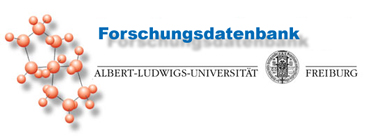| [Zurück zum Forschungsbericht] |
 |

Faktoren der Phosphorverfügbarkeit und deren Relevanz für die Phosphorernährung von Waldbeständen. Schwerpunktprogramm: Ecosystem Nutrition: Forest Strategies for limited Phosphorous Ressources / SPP 1685).
Projektbeschreibung:During the development of forest soils, phosphorus (P) commonly declines in both abundance and availability and thus becomes limiting for biological activity. Forest ecosystems adapt to this process by developing efficient P recycling mechanisms, including the formation of stable P-stores and optimized P uptake by trees. In Central Europe, this long-term soil evolution has been disturbed by an accelerated soil acidification driven by anthropogenic deposition. The fast decrease in P nutrition observed in various forests supports this hypothesis. We analyse how plant-uptake and percolation loss of P do change in relation to labile and stable P-pools from acquiring to recycling systems. Moreover the effect of man-made disturbance through acidification or liming is being studied. We perform mesocosm experiments, which represent the relevant aspects of forest ecosystems such as the natural aggregate structure and a natural vertical sequence of organic and mineral soil layers, which allows for adequate quantification of P-storage, sorption kinetics, and mobilization. The exchange rate between the P–stores and roots, mycorrhizal hyphae and soil water is assumed to decrease from the humus layer and / or small biotic aggregates in the Ah to large abiotic aggregates in the Bw horizon. The experiments will be divided in three parts. The first part will be the “control”, where the whole span of the pedogenetic gradient from acquiring to recycling systems will be represented (3 soils that developed from silicate rock with increasing soil acidification, Bad Brückenau, Vessertal, Lüss). The “liming” treatment is expected to result in increased solute concentrations of dissolved organic P (DoP), as well as in increased colloid load. The same is expected to occur as a result of heavy acidification pulses through mineralization of organic macro molecules.Projektlaufzeit:
Tel: 0761/203-3677
Email: Juergen.Bauhus@waldbau.uni-freiburg.de
Projektbeginn: 01.08.2013Projektleitung:
Projektende: 31.07.2017
Prof. Dr. Jürgen Bauhus
Albert-Ludwigs-Universität Freiburg
Professur für Waldbau
Prof. Dr. Jürgen Bauhus
Tennenbacherstr. 4
79106 Freiburg i. Br.
Telefon: 0761/203-3678
Fax: 0761/203-3781
Email: Waldbau@waldbau.uni-freiburg.de
www.waldbau.uni-freiburg.de
Mitarbeiter:
- Michael Witt